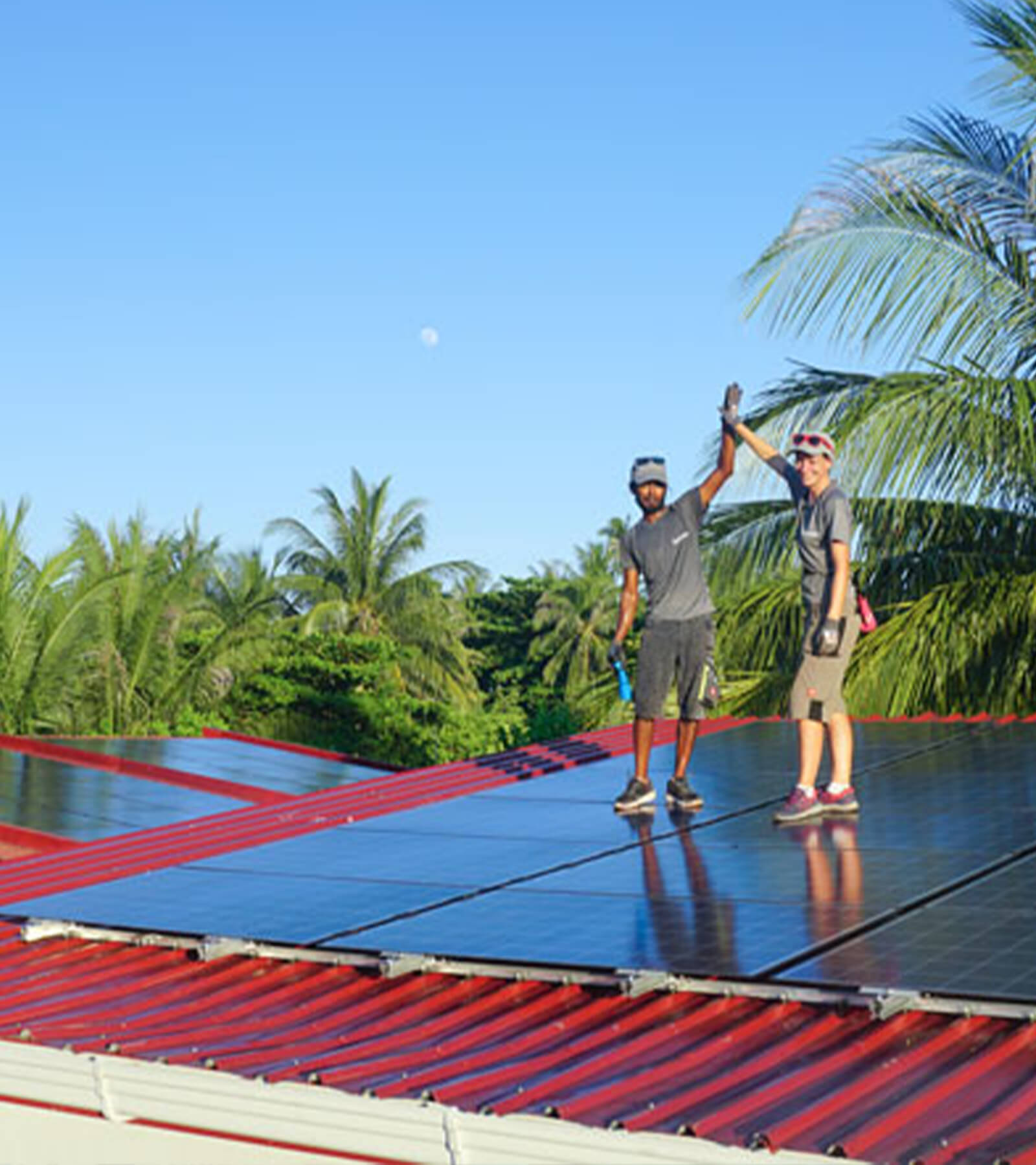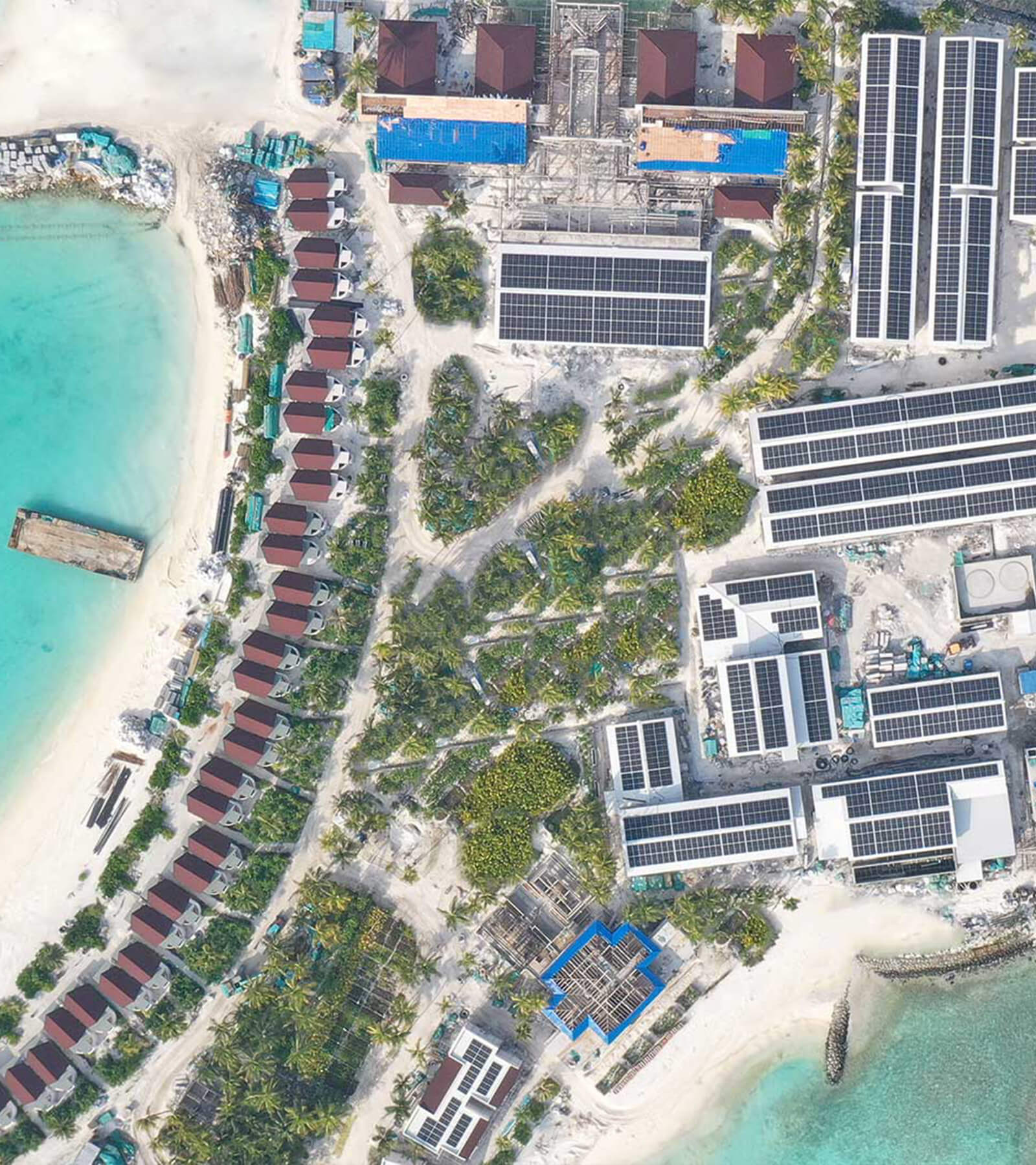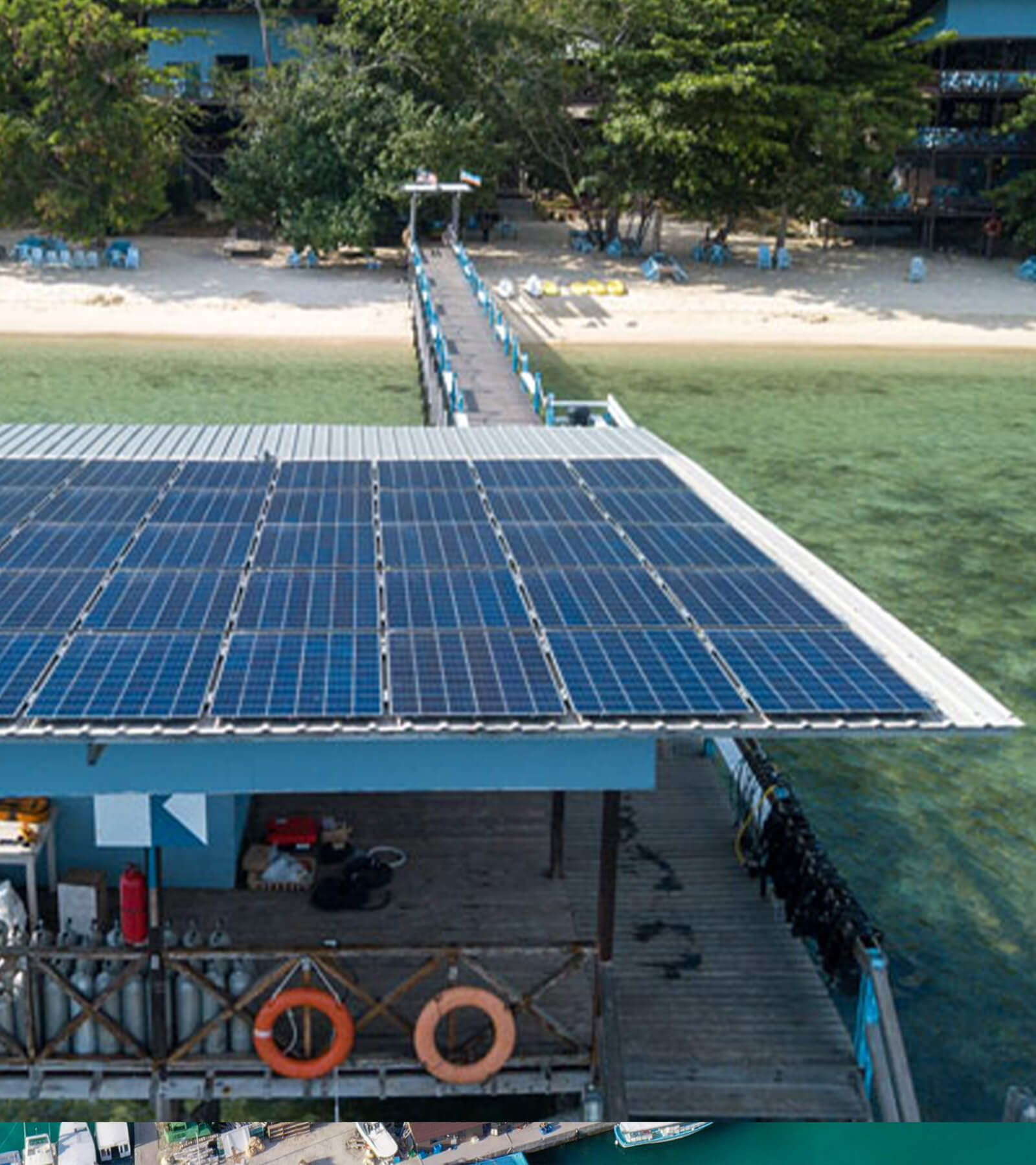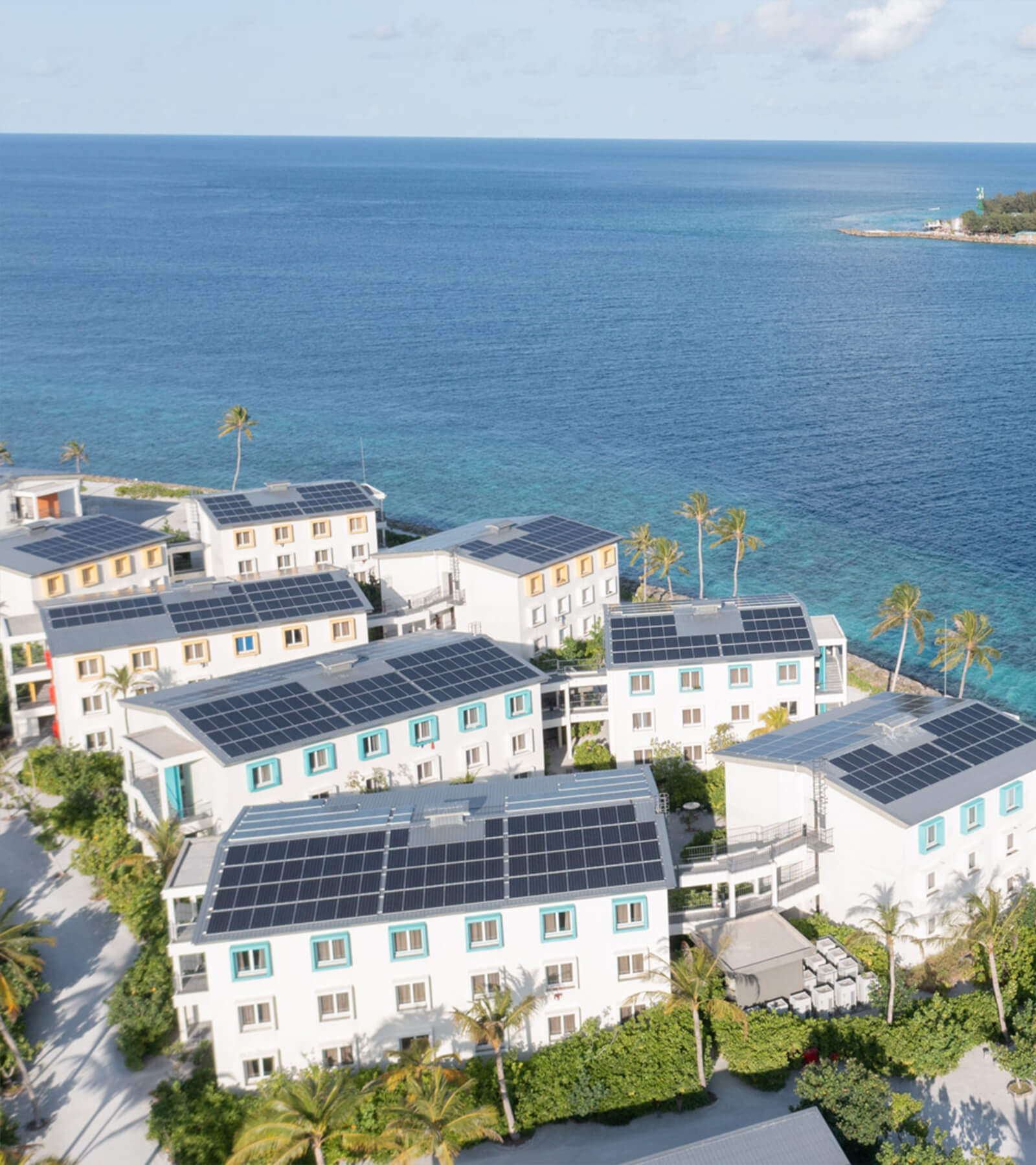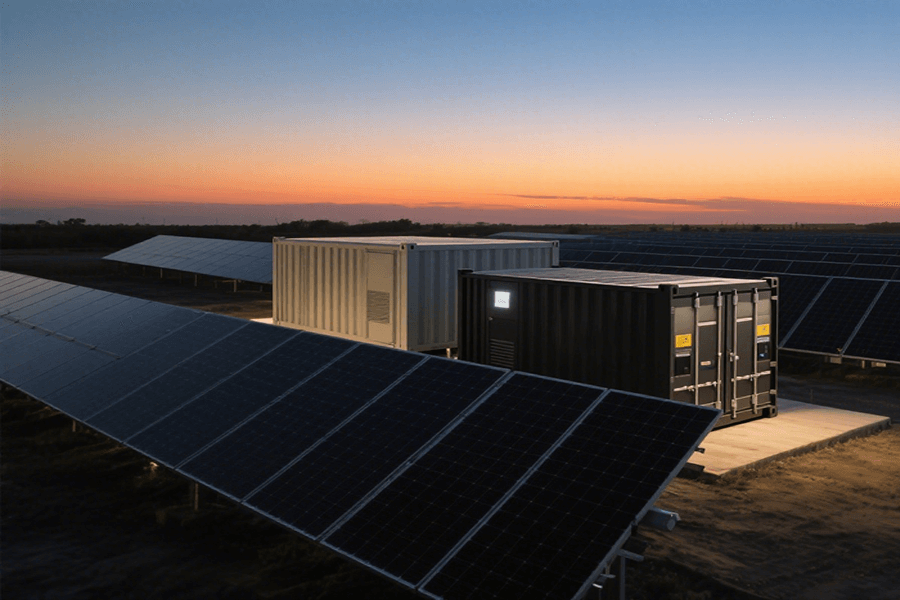
n the dynamic pursuit of a sustainable and energy-independent future, Europe has embarked on an ambitious journey. The continent has set a clear target: by 2030, 45% of its energy should be sourced from renewable resources. This strategic goal positions Europe at the forefront of the global transition to clean energy, with solar power emerging as a cornerstone of this visionary plan.
Several countries are leading the charge in solar energy adoption, with Germany at the vanguard. The nation has an audacious objective of reaching 215 GW of solar capacity by 2025, a testament to its commitment to renewable energy. However, the intermittent nature of solar power presents a significant challenge. Solar energy generation is contingent upon sunlight availability, leaving the energy grid vulnerable during periods of low sunlight, such as cloudy days or nighttime.
| Challenge | Impact on Energy Grid |
|---|---|
| Intermittency | Inconsistent energy supply |
| Seasonal Variations | Fluctuations in energy production |
| Dependence on Weather | Unpredictable output |
This is where BESS (Battery Energy Storage System) Container solar storage solutions step in as a game-changer. These advanced systems function as an essential link between energy generation and consumption, storing excess solar energy during peak production periods and releasing it when demand surges or generation wanes. By doing so, BESS Container solutions:
- Maximize Energy Utilization: Ensure that no solar energy goes to waste, optimizing the use of renewable resources.
- Enhance Grid Stability: Provide a reliable energy buffer, reducing the impact of solar power’s intermittent nature on the grid.
- Support Energy Independence: Enable countries to rely more on domestic renewable energy sources, reducing dependence on imported fossil fuels.
In essence, BESS Container solar storage solutions are not just a technological advancement; they are a strategic necessity for Europe’s energy transition. By addressing the limitations of solar power, these solutions are pivotal in realizing the continent’s ambitious renewable energy targets and paving the way for a more sustainable future.
Core Analysis 1: Modular Design for Rapid Deployment
BESS Containers stand as the avant-garde modular powerhouses of the energy sector, often likened to the iconic IKEA furniture, yet with far greater technological prowess. These innovative storage units are available in two standard sizes, meticulously designed to cater to diverse energy requirements:
| Container Size | Capacity Range |
|---|---|
| 20-foot | 1 MWh – 2 MWh |
| 40-foot | 3 MWh – 5 MWh |
The modular architecture of BESS Containers represents a paradigm shift in energy storage solutions. It’s akin to possessing a versatile set of building blocks, enabling seamless customization and scalability. Whether it’s a small-scale energy storage need or a large, complex requirement, these containers can be stacked and configured to meet the precise demands of any project.
One of the most compelling features of this design is its remarkable adaptability across different solar projects.
Distributed Solar Projects
For distributed solar initiatives, such as residential rooftop installations or small community setups, the compact dimensions of BESS Containers shine. Their streamlined size allows for effortless integration into existing infrastructure, minimizing the footprint required for installation. By positioning these containers in strategic, convenient locations, energy can be stored and accessed close to the point of consumption, significantly reducing transmission losses and enhancing overall energy efficiency.
Centralized Solar Farms
In contrast, large-scale centralized solar farms benefit immensely from the modular nature of BESS Containers. As these farms expand and evolve, additional containers can be seamlessly connected, scaling up the storage capacity in tandem. The installation process is a testament to modern engineering simplicity. Unlike traditional energy storage systems, which demand extensive time, resources, and a large workforce, BESS Containers can be deployed rapidly. It’s as straightforward as setting up a tent on a camping trip, enabling quick and efficient establishment of energy storage capabilities. This rapid deployment is a critical factor in Europe’s pursuit of its ambitious renewable energy targets, ensuring that storage infrastructure can keep pace with the rapid expansion of solar installations across the continent.
Core Analysis 2: Economic Benefits and Grid Stability
Let’s talk money, honey. BESS Containers are not just good for the environment; they’re also great for the wallet. Take Germany, for example. Under the EEG feed-in tariff, these storage systems excel at peak shaving, operating on a simple yet effective principle:
| Operation Phase | Time of Day | Electricity Price | BESS Container Action | Outcome |
|---|---|---|---|---|
| Storage | Daytime (Sunny) | Low | Stores excess solar energy | Efficient use of renewable power |
| Discharge | Peak Demand Periods | High | Releases stored energy | Maximizes revenue for producers and reduces grid strain |
They store up energy when the sun is shining and electricity prices are low, then release it during peak demand when prices skyrocket. It’s like buying your groceries when they’re on sale and saving them for when they’re super expensive. This dual benefit not only helps solar power producers make more money but also eases the strain on the grid during those high-demand periods. By doing so, it significantly reduces the need for expensive peak-time power generation from non-renewable sources, contributing to both economic savings and environmental sustainability.
And it’s not just about the money-making. In Spain, BESS Containers play a crucial role as the grid’s personal stability coach, specializing in frequency regulation. The electrical grid operates within a specific frequency range—any deviation can lead to equipment damage or even blackouts. Here’s how BESS Containers intervene:
- Monitoring: Continuously track the grid’s frequency in real-time.
- Rapid Response: When fluctuations occur, quickly inject or absorb power.
- Restoration: Bring the grid back to its stable frequency range.
This is similar to having a bouncer at a club, making sure everything stays orderly. By keeping the grid in check, BESS Containers prevent blackouts and brownouts, safeguarding critical infrastructure and ensuring a reliable power supply for all users.
Case Study: 2024 Project in France
In 2024, a groundbreaking project in France vividly demonstrated the transformative potential of BESS Containers. A 10 MWh BESS Container was strategically installed at a mid-sized solar farm nestled in the sun-kissed southern region of the country. This area, renowned for its abundant solar irradiance, concurrently grappled with intermittent grid limitations, often leading to significant energy curtailment issues.
Prior to the integration of the BESS Container, the solar farm faced a persistent challenge: curtailment. During peak solar generation periods, when the local grid infrastructure was unable to absorb the surging electricity output, a substantial amount of clean energy had to be wasted. The following table illustrates the extent of the curtailment problem before the installation:
| Period | Solar Generation (MWh) | Grid Capacity (MWh) | Curtailed Energy (MWh) | Curtailment Rate |
|---|---|---|---|---|
| Pre-install | 100 | 80 | 20 | 20% |
Upon the successful deployment of the 10 MWh BESS Container, the solar energy system underwent a remarkable transformation. Acting as an intelligent energy buffer, the container effectively mitigated the curtailment issue by storing excess energy during peak production phases and releasing it when grid demand increased or capacity became available. The impact was profound, with curtailment reduced by a staggering 25%, as evidenced in the post-installation data:
| Period | Solar Generation (MWh) | Grid Capacity (MWh) | Curtailed Energy (MWh) | Curtailment Rate |
|---|---|---|---|---|
| Post-install | 100 | 80 | 15 | 15% |
This innovative solution ensured that the majority of the harnessed solar power was efficiently utilized, rather than being wasted. It’s analogous to finally finding the perfect lid for a leaky bucket, preventing precious resources from going to waste. This project not only underscored the practicality and efficacy of BESS Containers but also established a blueprint for similar initiatives across France, propelling the nation’s transition towards a more sustainable and resilient energy future.
Conclusion: BESS Container as a Future-Proof Investment
In conclusion, BESS Container solar storage solutions serve as the linchpin for Europe’s renewable energy ambitions, embodying versatility and efficiency on par with a Swiss Army knife. Their modular architecture stands as a testament to adaptability, seamlessly accommodating solar projects of varying scales—from distributed rooftop installations to expansive utility-scale farms.
The economic advantages of these storage solutions are multi-faceted, as illustrated in the table below:
| Benefit | Description | Impact on Solar Producers |
|---|---|---|
| Peak Shaving | Discharging stored energy during high-demand periods to avoid grid congestion | Reduces reliance on expensive peak-priced power |
| Curtailment Mitigation | Storing excess solar generation that would otherwise be wasted due to grid constraints | Maximizes revenue by capturing more energy |
| Ancillary Services | Providing grid balancing services (frequency regulation, voltage control) | Creates additional revenue streams |
Beyond financial gains, BESS containers play a critical role in maintaining grid stability—a necessity as Europe accelerates its transition to renewable energy sources. By smoothing out solar intermittency and enabling load shifting, these systems safeguard grid integrity while supporting the ambitious targets outlined in the EU Green Deal.
Investing in BESS Container solutions represents a strategic decision with far-reaching returns. They not only enable the seamless scaling of solar energy infrastructure but also future-proof energy systems against technological advancements and evolving regulatory landscapes. In short, these storage solutions are an indispensable asset for building a resilient, sustainable energy future in Europe.
About Maxbo Solar
Maxbo Solar: Pioneering Europe’s Energy Independence with BESS Container Solutions
At Maxbo Solar (www.maxbo-solar.com), we’re on a mission to revolutionize the solar and energy storage landscape. Our unwavering focus lies in developing state-of-the-art BESS Containers that not only excel in performance but also offer seamless integration into diverse solar projects.
Our Expertise
Backed by a team of seasoned professionals with decades of cumulative experience in the renewable energy sector, we’re constantly pushing the boundaries of innovation. Our experts, much like energy wizards, are dedicated to refining and enhancing our BESS Containers, ensuring they remain at the forefront of technological advancements.
Tailored Solutions for Europe’s Unique Needs
We recognize the distinct challenges Europe faces in its pursuit of energy independence. Whether you’re:
- A rooftop solar enthusiast looking to optimize your energy storage for self-consumption
- A large-scale energy company managing expansive solar farms and seeking reliable storage solutions
Our BESS Containers are meticulously designed to meet your specific requirements.
Why Choose Maxbo Solar?
| Feature | Description |
|---|---|
| Performance | Industry-leading efficiency and reliability, ensuring optimal energy storage |
| Integration | Designed for seamless compatibility with various solar projects |
| Quality | Rigorous quality control measures to meet the highest international standards |
| Customer Support | Dedicated team to assist with installation, maintenance, and technical queries |
Our commitment to quality, reliability, and customer satisfaction is unwavering. Every product that leaves our facility undergoes stringent testing to ensure it meets and exceeds expectations.
Join us at Maxbo Solar in our exciting journey towards a more energy-independent Europe. Let’s harness the power of the sun together and shape a sustainable future for generations to come.

